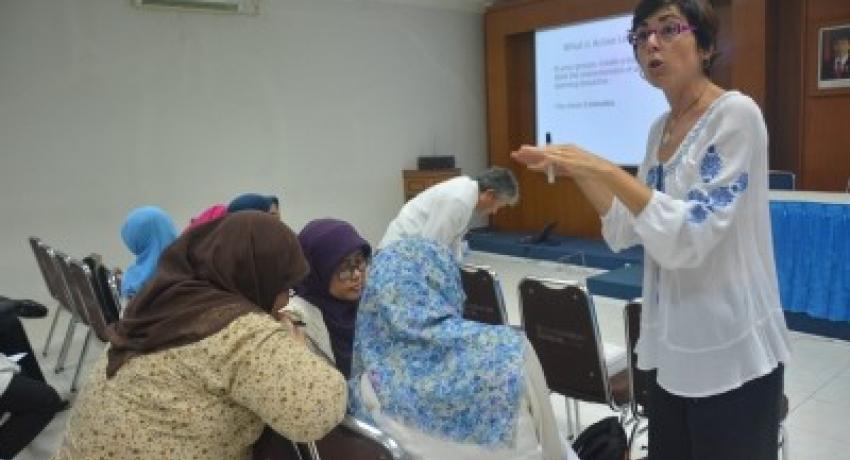The lecturers at the Faculty of Mathematics and Natural Science (FMNS) YSU joined the Workshop of Active Learning in the Sciences, on Wednesday (23/3) at the FMNS. The speakers on this were occasion Allen Price, PhD (Associate Professor at Emmanuel College Boston, USA) and Ana R. Otero, Ph.D. DVM (Senior Lecturer at Emmanuel College Boston, USA).
On this occasion, Otero and Price gave discussion on the characteristics of active learning. As described by Otero, in active learning, student engagement in learning is necessary, in addition to learning is the student's responsibility.
"Learning activities are carried out by means of group. Classroom interaction between teachers and students also students with students must go well. In addition, there are various models of teaching and learning, and dynamic environment that help students actively learn "added Otero.
To implement active learning techniques, on the occasion, Otero and Price provide training to the participants of the workshop to answer the first question given. One question must be answered within one minute. During that time the participants wrote 3 to 5 possible answers. Then 2 minutes time was given to form a group with other participants, then make a list of 2 to 3 best answers. The next step was to share your answers with other groups.
The next exercise was an activity to think and answer questions, and provide feedback.
Otero explained that after the event, the understanding and student’s engagement will increase. Students will enjoy the learning process, and easy to remember lessons.
However, there are negative sides from the process. "This learning requires a lot of time, making it possible to not discuss all matter or topic, thus making teachers work harder. If students are passive, active learning will not be optimal "said Otero.
Furthermore, she added that, if a student admits that she/he understands the theory during group work in progress, but his or her understanding was wrong, then the friends / students participating in understanding the material will be wrong also. Some Professors who viewed this learning may think that the lecturer did not do the job with the maximum efforts because students are more talkative. (witono)





